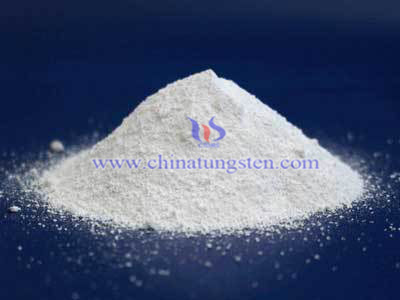Comparing Thermal and Mechanochemical Decomposition of Ammonium Paratungstate (APT)
- Details
- Category: Tungsten Information
- Published on Friday, 30 October 2020 00:40
Ammonium paratungstate (APT) is common starting material in the synthesis of tungsten products. Thermal decomposition of ammonium paratungstate (APT) in air leads to production of tungsten trioxide (WO3) which can be used as a catalyst. WO3 is also a common precursor material for manufacture of tungsten metal powder, which has been applied in the fields of lightings, electronics, and high-temperature resistant material.
It might be possible that decomposition reaction takes place during high energy ball milling due to mechanical energy. In fact, thermal energy which is used for decomposition can be replaced by mechanical energy.

Following experiment steps has been conducted for comparing thermal and mechanochemical decomposition of APT:
5 g of APT was milled in high energy planetary ball mill at room temperature. The weight ratio of the steel balls to the powder (BPR) was kept 40:1, and rotation speed was 300 rpm. Mechanical milling was performed under air atmosphere at different times. 5 CC hexane was used as processing control agent (PCA).
For thermal decomposition, APT was heated in conventional electric furnace at 300 and 450 °C for 30 minutes in air atmosphere. The thickness of powder layer was 2 mm. The decomposition progress was characterized by X-ray diffractometry (XRD) with Cu Kα radiation (λ = 0.15406 nm). The XRD patterns were recorded in the 2θ range of 5–60° with 0.02° step size, and 1 s time per step. Thermo gravimetric analyzer and differential scanning calorimeter with the rate of 10 °C/min under air atmosphere were used for studying the decomposition steps of APT.
In conclusion, the analyzed data indicated that APT completely decomposes to WO3 during thermal decomposition in the air, while the product of mechanochemical decomposition is WO3 (H2O)0.5. During mechanical milling crystal water and ammonia liberate from APT, and WO3 (H2O)0.5 crystallizes from X-ray amorphous phase. The milling energy is not enough for liberating the structural water, and it needs high temperatures (above 400 °C) for complete decomposition.
- APT Manufacturer & Supplier, Chinatungsten Online: ammonium-paratungstate.com
- Tungsten News & Prices of China Tungsten Industry Association: www.ctia.com.cn
- Molybdenum News & Price: news.molybdenum.com.cn
- Tel.: 86 592 5129696; Fax: 86 592 5129797; Email: sales@chinatungsten.com



 sales@chinatungsten.com
sales@chinatungsten.com